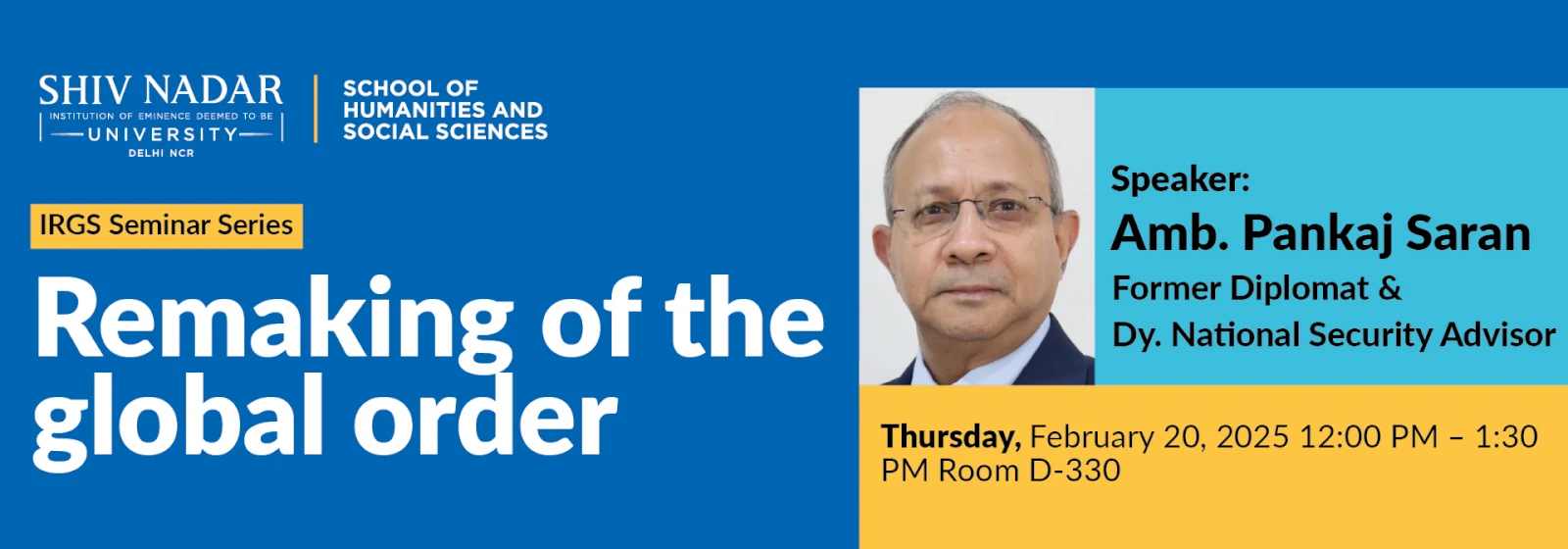Remaking of the global order
We are in the midst of a generational shift in the global order. The last time such a tectonic shift took place was after the fall of the Soviet Union and defeat of communism in the Cold War. The West is in crisis, China is rising, and Russia has emerged as the biggest disruptor with its decision to walk into Ukraine. Other powers, not least India, are emerging. New determinants of national power like technology have emerged. The battle between interests and values has come out into the open. National interest is trumping internationalism. There is absence of global leadership. Both established and emerging powers are questioning traditional assumptions. The United Nations has never looked as irrelevant in tackling the fundamental challenges of the day. How do we read these changes and what does this mean for India?
Biography: Pankaj Saran is a former diplomat with forty years of experience in foreign, strategic and national security affairs. He has served in key positions within the Government of India in the Prime Minister’s Office, the National Security Council Secretariat, the Ministry of External Affairs, and several Indian Missions abroad. He has served as India’s Ambassador to Russia, India’s High Commissioner to Bangladesh, and as Head of the Northern Division in the Ministry of External Affairs dealing with Nepal and Bhutan. From 2018 to 2021, he served as the Deputy National Security Adviser for Strategic Affairs under Prime Minister Narendra Modi, dealing with regional and global strategy formulation, including maritime security and Arctic affairs, neighbourhood policy and technology and economic security. Pankaj Saran is presently the Convenor of NatStrat, a Delhi-based independent Centre for Research on Strategic and Security Issues.

Share this: